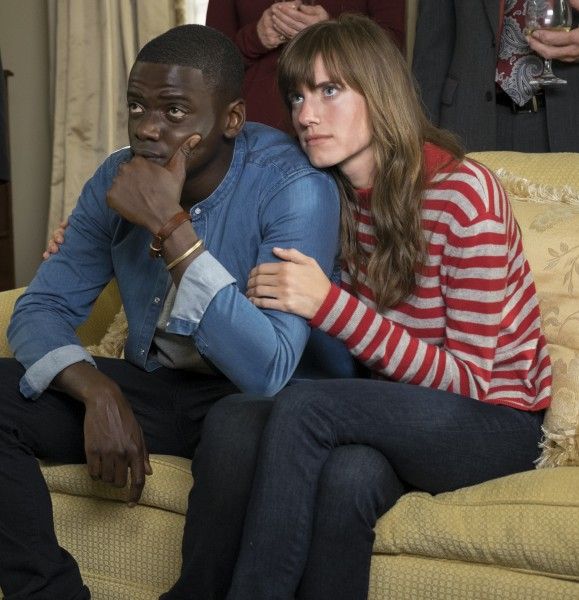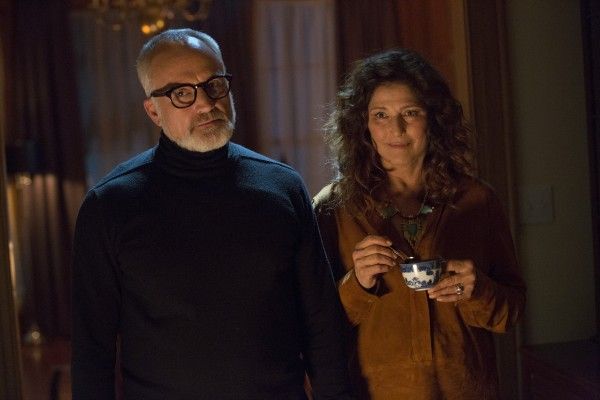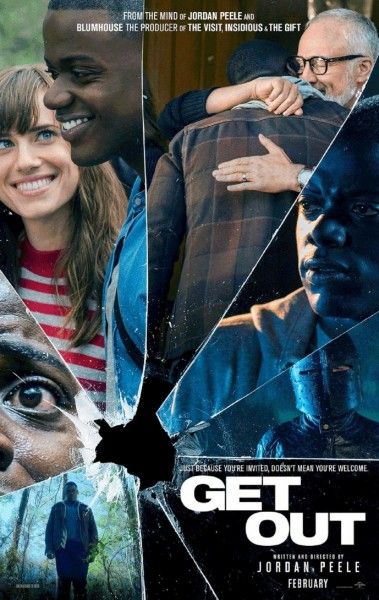Get Out is one of the most successful films of 2017. It raked in over $30 million on its opening weekend off a budget of $10 million, and at one point it had 100% rating on Rotten Tomatoes from over 100 reviews. Critics and audiences are buzzing about Jordan Peele’s thoughtful commentary on race relations. If there end up being ten movies that are better than Get Out this year, 2017 will have been an amazing year for cinema.
And yet its chances of being in the Oscar race are considered nil because it’s a horror movie. Moreover, it’s a horror film that proudly wears its genre on its sleeve. It’s not an art-house horror film like The Witch or Under the Shadow. It was made by Blumhouse, the company behind Split, The Purge, and Insidious, and it happily occupies the horror genre with no apologies. Nor should it have to apologize for being horror. It’s one of a more insightful, thoughtful genres when given to the right filmmakers, and Peele has made a gleefully sharp and profound film that has the audacity to entertain as well as comment on society.
But no one is talking about its Oscar chances because it seems to be a foregone conclusion that a populist horror film that confronts racism has no place among the VERY SERIOUS NOMINEES. If Mr. Peele wanted to make a movie about race that received Academy attention, he should have set it during slavery or the civil rights movement. It has been ordained that the only way Hollywood films can talk about race in America is through a historical lens, which is a bit feeble in the scheme of things. It confronts The Struggle, but it also lets the dumber white people in the audience off the hook by letting them think that racism is a thing of the past.
These staid parameters don’t just do a disservice to the horror genre; they do a disservice to the Oscars, to filmmakers, and to audience. For the Oscars, it says that only certain kinds of movies about racial conflict can be celebrated. To filmmakers, it says that if you want to be taken seriously, you have to make dramas, and that no other genre has anything to offer. To audiences, it says it doesn’t matter if you came out and supported a challenging movie; at the end of the day, what matters is what was met with critical acclaim from September through December. An acclaimed horror movie that was released in February has no place among the year’s best.
Here’s the thing: the Oscars need Get Out more than Get Out needs the Oscars. If you're Blumhouse and Universal, you're already laughing all the way to the bank. Additionally, Universal doesn't really play the awards game to the same level as other distributors. Their "Oscar" film last year was The Girl on the Train, which got a half-hearted push and then nothing when it became clear there was no chance of it being a serious competitor. If you look at their 2017 slate, the only thing that really jumps out as a possible contender is Doug Liman's American Made, which stars Tom Cruise and is based on the true story of a former TWA pilot who became a drug smuggler and DEA informer. But that's assuming it will check the same boxes with the Academy that Get Out has already checked.
This year, people were talking about the Oscars not because of the films they nominated or any worthwhile storylines that emerged. They’re talking about the Oscars because of a mistake, and maybe people will tune in next year in the hopes of seeing something spontaneous (they’re far more likely to see winners joke, “Are you sure?” when they receive their Oscar). But people tune in to see competitive events because they like the competitors. The reason Oscar hosts can make the same tired jokes about no one seeing the nominated movies is because expanding the Best Picture category hasn’t yielded more diversity; it’s just yielded more of the same. I’m overjoyed that the Oscars recognized great films like Moonlight, La La Land, and Manchester by the Sea, but there were also safe choices like Hacksaw Ridge and Lion. An “outsider” nominee like Arrival required not only critical acclaim and commercial success; it also opened at the right time of year, approached sci-fi in a very serious manner, and at the end of the day, won as many Oscars as Suicide Squad. Genre films have to be perfect because the Academy and awards talk feeds into the same kind of films being recognized.
And what has that talk yielded? Here are some films that were on prognosticators’ Oscar radars at one point or another and produced one or zero nominations: Live by Night, Miss Sloane, Billy Lynn’s Long Halftime Walk, The Birth of a Nation, Nocturnal Animals, Silence, and Sully. They were understandably seen as major players because of subject matter and/or the director’s past success with the Academy, but none of these movies caught on with audiences, critics, or Academy voters. Is it so outlandish to really consider Get Out when it already has the support of the first two groups and its subject matter is as serious as any of the aforementioned movies if not more so?
Additionally, it’s not unheard of for a horror film released in February to do well at the Oscars. A little movie called The Silence of the Lambs was released on February 14, 1991. It went on to sweep the Oscars, picking up wins for Best Picture, Best Director (Jonathan Demme), Best Adapted Screenplay (Ted Tally), Best Actor (Anthony Hopkins), and Best Actress (Jodie Foster). When a film strikes a chord and creates a lasting impression, the right move is to listen, not to retreat to conventional wisdom.
If people are tired of lack of diversity when it comes to nominees, and if the Oscars are truly meant to celebrate the best of the year and not just the best films made within a particular mold, then Get Out should remain in the conversation for, at the very least, Best Picture, Best Director, and Best Original Screenplay. I encourage Oscar bloggers to stop playing to what could be in the conversation and instead start drawing attention to what should be in the conversation. Its glowing reception from critics and audiences say that Get Out should be in the game. The fact that it’s a horror film released in February is a silly reason to discount it.





